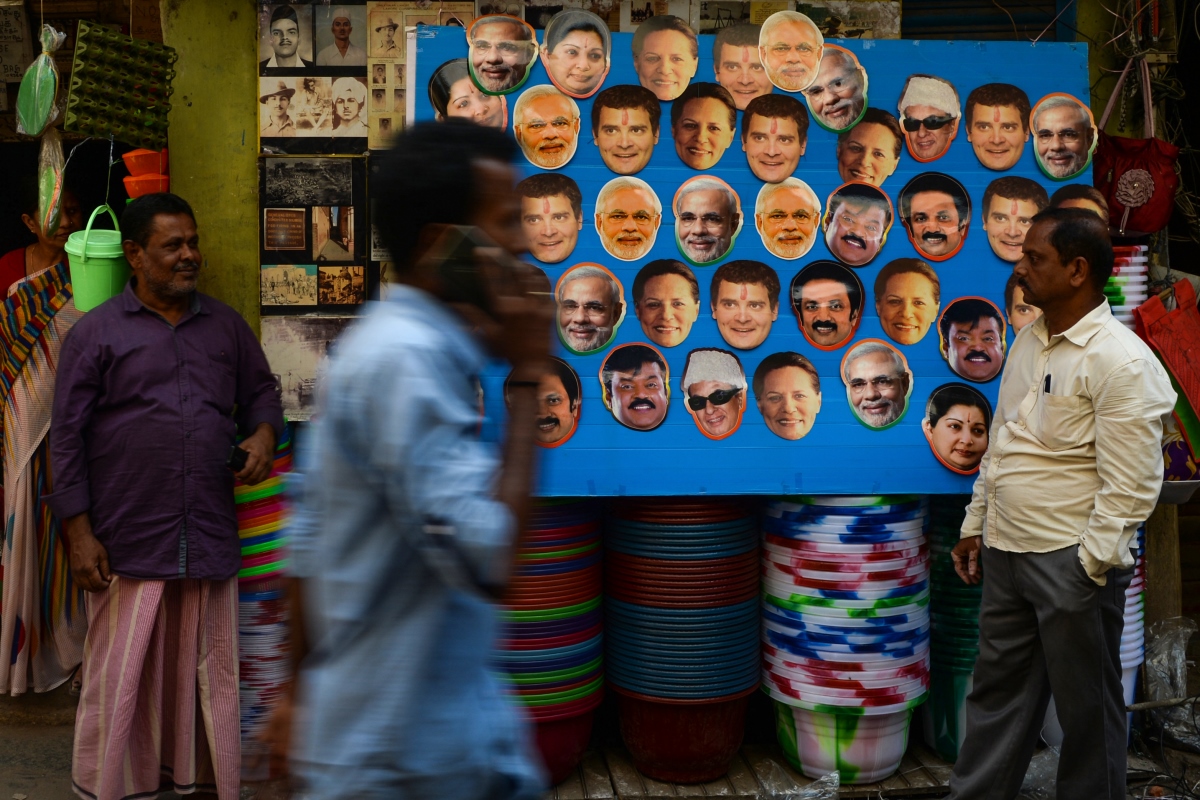Shah to address rallies for Dilip Ghosh, Amrita Ray
Union home minister Amit Shah will hold organizational meeting and join rallies in the state tomorrow.
Not even the Americans spent as much on their 2016 presidential and Congressional races of $6.5 billion to go by the numbers from OpenSecrets.org, the ‘money in American politics’ tracker.

A shopkeeper displays masks of Indian Congress Party President Rahul Gandhi and Indian Prime Minister Narendra Modi for sale at a roadside shop in Chennai on March 14, 2019. (Photo by ARUN SANKAR / AFP)
The more transparent things are seemingly made, the more opaque they become especially in the world’s largest democracy that will have 900 billion people casting their votes over a seven-phase exercise in 39 days in more than 10 lakh polling booths.
Eyebrows are being raised about Kolkata accounting for more than 50 per cent of the 937 electoral bonds, worth Rs 356.36 crores, purchased in the January 2019 cycle, with little explanation about what makes the city so attractive for electoral bond buyers though it is generally known in subterranean circles that Kolkata is the headquarter for the country’s jama-kharch phenomenon, under which cash is converted to cheques.
The Electoral Bonds Scheme 2018 permits corporates, those part-owned by overseas interests included, to fund elections anonymously, fuelling suspicions that instead of inducing transparency they have induced opacity, with even shell companies allowed to be conduits for funds. Both the amounts and clean sources of funding are of critical importance for the Indian ballots.
Advertisement
Thus far the Election Commission of India (EC) has only provided provisional expenditure of the 2014 Lok Sabha election of Rs 3,870 crore, which seems reasonable enough, compared to the projections for the 2019 event, at Rs 50,000 crore ($7 billion), by the New Delhi-based Centre for Media Studies (CMS).
Not even the Americans spent as much on their 2016 presidential and Congressional races of $6.5 billion to go by the numbers from OpenSecrets.org, the ‘money in American politics’ tracker.
The EC has a sanctioned budget of Rs 2.62 billion; add to that the humongous spend on pre-poll freebies by the government at around Rs 100,000 crore (Reuters figures) to improve its re-electability score plus the independent spending by political parties, which will touch Rs 50,000 crore, according to the CMS’ estimates and the sums are mind-blowing.
Declaration that the CMS website “may have been hacked” occasions little surprise because no political party enjoys its election spend questioned. Supposed to usher in a regime to bypass cash payments, it was curiously passed as a money bill that only needed to be cleared by the Lower House, where the ruling party had absolute majority.
In hindsight, the fact that there was little debate over the ‘doing good’ bill, which actually threatens to have such a drastic impact on Indian democracy, virtually paving the way for the highest bidder to command control over political parties no questions asked, may well ring in catastrophe.
The Association for Democratic Reforms’ findings that 53.9 per cent of the Bharatiya Janata Party’s Rs 10.3 billion political funding was anonymous and, of the Congress Party’s Rs 2 billion, 60.2 per cent was from sources unknown, have their own tale to tell. It does not need a sceptic to ask whether the bill was passed without demur because every political party stood to gain even if Indian democracy stood to get slaughtered.
Advertisement